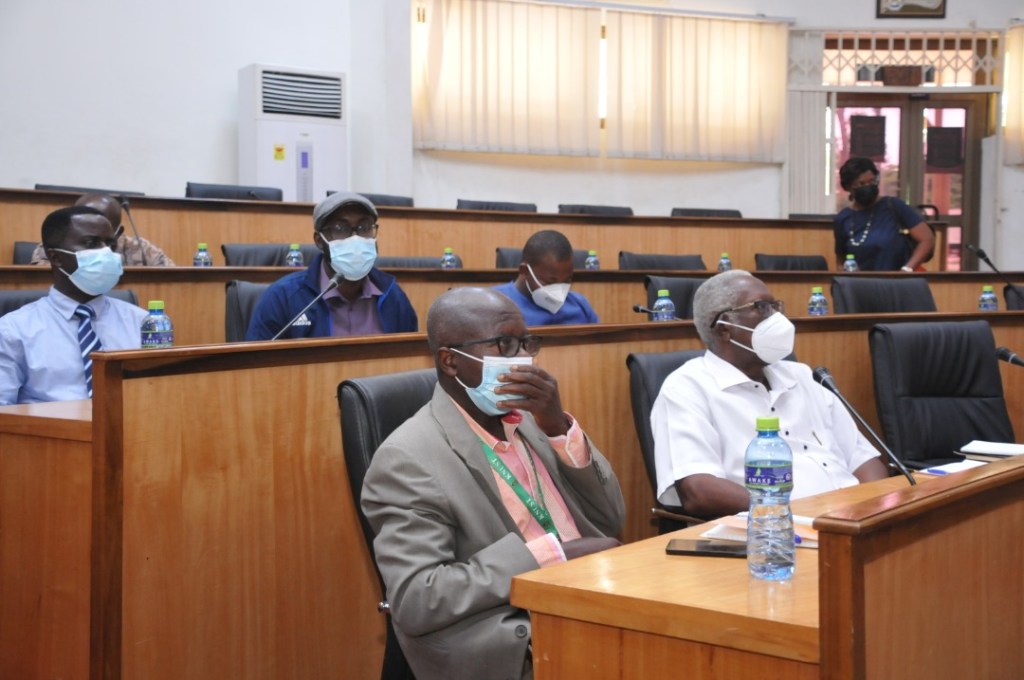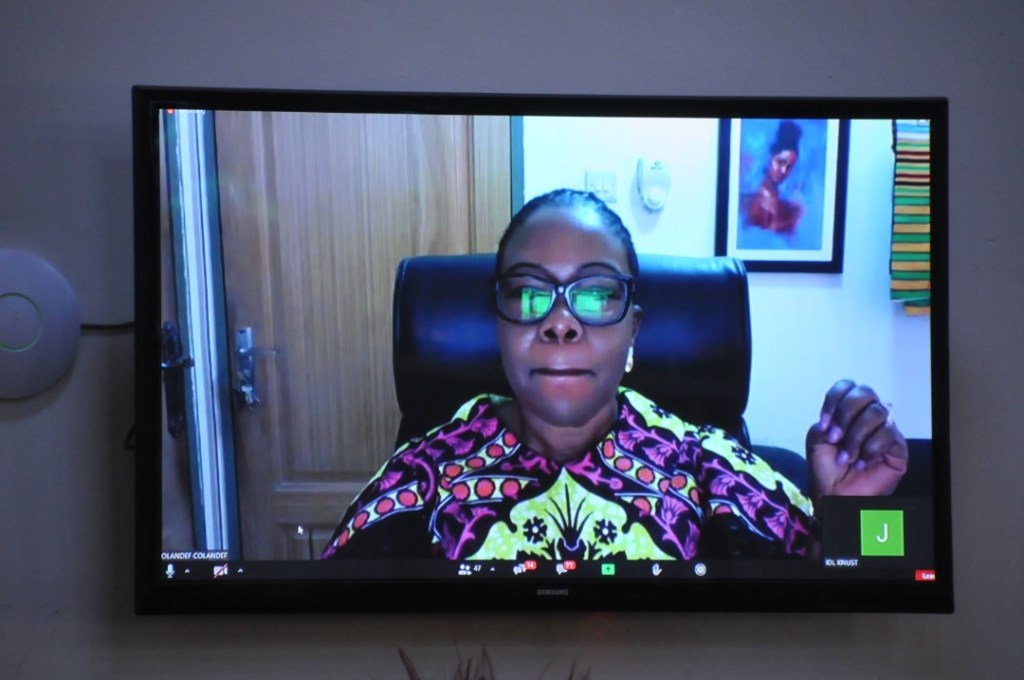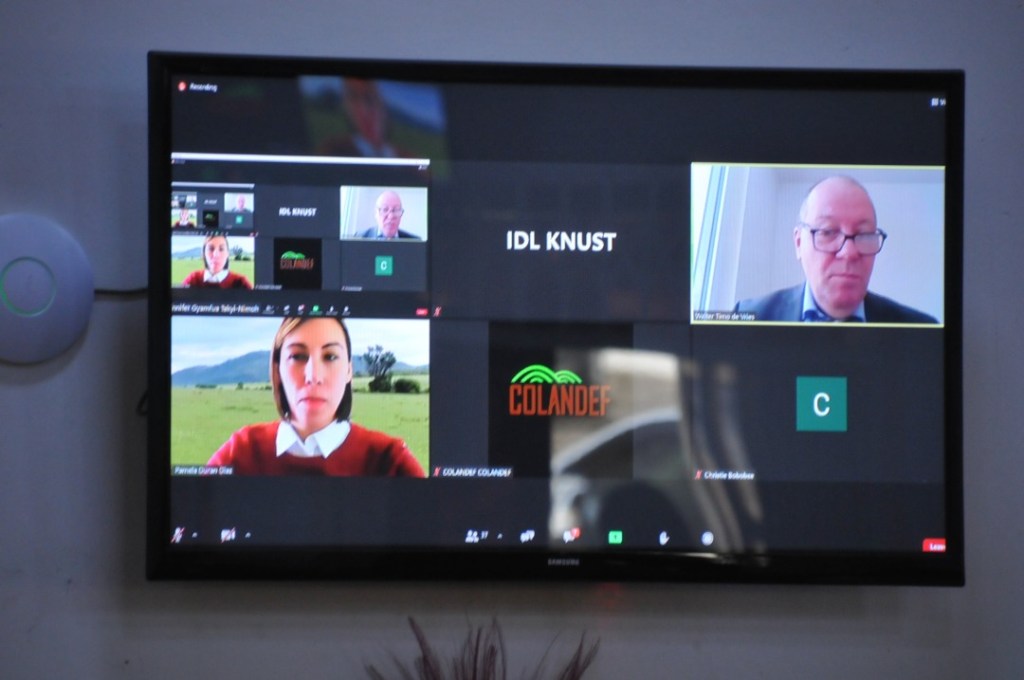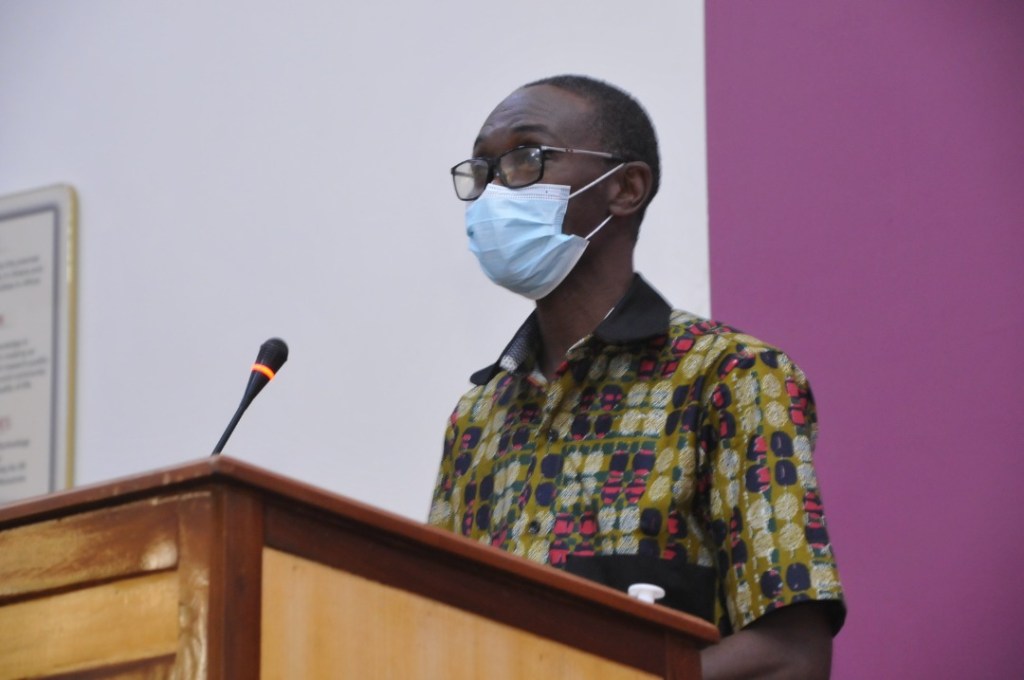Author: NELGA
RCMRD and GCI Holds Workshop to Showcase NELGA Land Data Hub
NELGA’s Land Data Hub is a platform developed to ensure the collation, documentation and real time analysis of land data in Africa. Currently collating data from four pilot countries (Tanzania, Botswana, Rwanda and Senegal), NELGA is preparing to make the platform public from Tanzania on April 20,2021. Land stakeholders and users from research institutions, academics, government, and other areas from the country will attend this event. Subsequent similar workshops will hold for the other countries as well.
Developed by Regional Centre for Mapping of Resources for Development (RCMRD) and Geo Consult International (GCI) with support from Deutsche Gesellschaft für Internationale Zusammenarbeit (GIZ), the NELGA Land Data Hub aims to accumulate and store country- and region-specific sources of land-related information. It also intends to guide land governance stakeholders and end-users in obtaining this information.
The workshop provides the opportunity to have a live demonstration of the NELGA Land Data Hub platform features and functionalities as well as other pertinent issues like ensuring reliable and accurate primary data. The workshop will focus on the adoption, roll out and implementation of the platform.
With the ease in access to such land data, NELGA Land Data Hub will ensure appropriate government policing, monitoring, and implementation of land programs in Africa. Having access to detailed land information will also enable researchers across the continent to carry out broad scopes of applied research to inform policy dialogues and reforms.
Blockchain for Land Administration: News from TUM, KNUST and NELGA workshop on Securing Land Rights in Ghana
The TUM-KNUST Workshop on Blockchain and its applications to secure land rights was successfully held from 18th to 19th March 2021 at the Institute of Distance Learning Conference Centre in Kwame Nkrumah University of Science and Technology (KNUST). Stakeholders from public and private sectors, non-governmental organizations, policy advocacy groups, and traditional authorities were brought together during this workshop. According to Professor Walter De Vries of the Technical University of Munich (TUM), the main purpose of this 2-day workshop was to provide a platform for stakeholders in the land sector to deliberate on the potential of blockchain application to securing land rights in Ghana.
Property rights are a stepping stone in international development theory. The most elementary form of property rights is land rights. Over 80% of land titles in Ghana lack the documentation to prove ownership. The World Bank ranks Ghana with a Land Registering Index of 119 out of 190, describing the difficulty to register property. This makes land investment difficult and costly as it allows for fraud, multiple sales of land, conflicts among many claimants, and inefficiencies for acquiring property. Although the Government of Ghana attempted to develop a sustainable, fair, and well-functioning land administration system, not much has been achieved. Up until now, institutional bottlenecks have led to decreased transparency and development in property rights.
THEREFORE, the TUM-KNUST Workshop on Blockchain and its applications to secure land rights reignited the previous efforts made and advanced the way forward. During the workshop, there were several presentations from key land sector agencies and players in the country, both public and private. Day one focused on understanding the land administration architecture and land registration of Ghana and its challenges. Day two was dedicated to discussing the features of blockchain technology and its applications to securing land rights using case studies. A case study on Georgia, Kenya, Sweden, Canada, and the Netherlands was presented. Policy recommendations were also made, giving direction for further research regarding blockchain in land registration in Ghana.
The lack of effective collaboration among the land sector agencies, lack of change management processes, need for advanced technology and tools, and limited focus on public lands were some of the challenges raised during the discussions. It was clear from the presentations and the plenary discussions that blockchain technology was only a means to an end despite its potential. Blockchain technology in itself would not resolve the many fundamental challenges with land administration in Ghana, such as indeterminate boundaries of stools lands and corruption among public sector agents on top of others. According to Professor Walter De Vries, reward and punishment incentives for those who register their lands and those who do not, respectively, could be helpful.
Finally, the workshop was closed by encouraging stakeholders to keep this conversation running and annually provide progress reports on the foundation laid by this workshop.
93% of Egypt’s Land Remain Vacant but Open for Urban Expansion
NELGA's Publish Scoping Study on Land Tenure Systems in North Africa at Second Arab Land Conference in Egypt
On February 24, 2021, NELGA presented its research findings from a scoping study calling for an increase in capacity-building programs that responds to the needs of urban planning and land development in North Africa during a Masterclass at the Second Arab Land Conference in Cairo, Egypt. The recommendation came from their presentation of a scoping study carried out by the North Africa Consortium to identify the current state, challenges, and areas for growth in addressing land tenure issues in North Africa.
The Masterclass focused on capacity needs to enable good land governance in North Africa and reflected on the study’s findings. The main objectives of the scoping study were to review the current land tenure conditions in the region, to support demand-driven research that meets training and research needs of different land governance stakeholders, to identify the common challenges of the Arab region, and to inform tailored capacity development in meeting the common challenges as identified in the research
The scoping study was carried out in Egypt, Sudan, Mauritania, Tunisia, and Morocco. In the Masterclass presentation, the report identified that though there is evidence of accelerated development in the region’s land governance space, it is important to ensure land processes are established by bridging capacity gaps, reinforcing best practices and technical guidelines mainstreamed to the peculiarities of the region.
“In Egypt, the clear majority of cities are within the fertile Nile river valley and delta, which leaves about 93 % of Egypt’s land vacant. The pressure of urban expansion was further escalated by government’s inability to formulate efficient and integrated policies and plans that urban channel expansion towards new cities (also known as desert cities).” – Land Tenure Systems in North Africa: Scoping Study
Among other recommendations, the study called for the reinforcement of land titling and registration systems to ensure social and economic equity and maximise natural resources, among other things. NELGA’s coordinator at the Africa Land Policy Center (ALPC) Chief, Dr. Joan Kagwanja, was appreciative of the direction the Arab world was taking in its interest in the land governance space, ” It’s important that knowledge exchanged creates linkages for policy and institutional development in North Africa. Land policy and land governance suffer from a lack of capacity. We are interested in collaborating with programs that work to solve this challenge;
The Masterclass was conveyed by the NELGA North Africa node under Prof. Moha El-Ayachi and featured Nabila Zouhiri, Siraj Sair, Heba Allah Khalil, Sait El Azark, and Salwa Saidi as speakers.
NELGA North Africa Coordinator Prof. Moha explained that the Masterclass aimed to show the important role of capacity development to land management, “Capacity development is crucial to addressing land conflicts, cadastral development, urban planning, and land use strengthens the local economy. One of the ways NELGA closes these capacity gaps is by setting up Masters degree programs on land management and building a partnership program with its North Africa member universities.” He also stressed the need for more training and research actions.
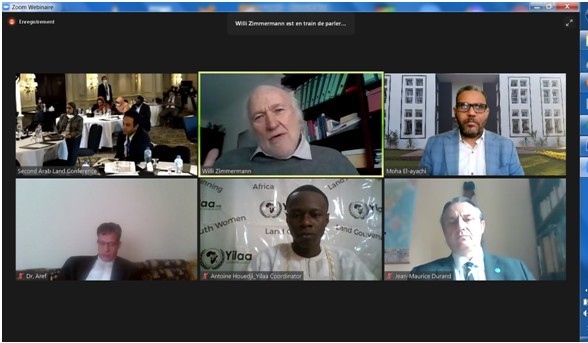
One of the main recommendations taken away from the Masterclass was strengthening academia’s role in coordinating actions between Private and Public partners. Encouraging the integration of new educational paradigms in training and research/smart tools on land governance was also emphasized. It was similarly mentioned that promoting youth/women initiatives for research actions on land governance, especially land right access, is crucial for the way forward. Reinforcing mastering strategies for good spatial and urban development was another point that was raised.
NELGA finally indicated that it offers advice in curricula development to universities and research institutions. It supports research by networking with Arab teams such as the Univerity of Lebanon and the introduction of its Master’s Program in Land Management. It also shares knowledge by publishing findings and research results through the African Journal on Land Policy and Geospatial Science.
Click here to read the Executive Summary of the Scoping Study
Find Presentations from the Masterclass below:
- Building a partnership for collaboration and capacity Development ft case study from Lebanese University by Prof. Jean Doumit
- Capacity Building on Land Governance and Land Tenure Using Geoinformatics Techniques by Prof Eltiab Saeed Ganawa
- Capacity Development Analysis in Egypt by Prof. Dr. Heba Allah Khalil
- Capacity Development Reflection by Prof Moha El-Ayachi
- De la gouvernance à la géogouvernance fonciére en Tunisie Dr Salwa Saidi
- Enhancing Land Development and Management by Prof Ousmane Wague
- Masterclass Common Strategy for Strengthening Capacity Development in The Arab Region
- Masterclass on Capacity Development in the Arab Region and The role of NELGA North Africa hub
- Methodological Framework for Conducting Scoping Studies in North Africa by Dr Nabila Zouhiri and Dr. Siraj Sait
Appel à Candidats et Bourses d’études – Master ‘Gouvernance Foncière et Gestion des Territoires’
Dans le cadre de l’initiative NELGA, l’UFR des Sciences Juridiques et Politiques de l’Université Gaston Berger de Saint Louis a récemment établi le master « Gouvernance foncière et Gestion des territoires ». Le Master est ouvert aux étudiants ou professionnels titulaires d’une licence (ou tout autre diplôme admis en équivalence) voulant se spécialiser dans les domaines de la gouvernance foncière. Sur critère d’excellence, les frais de scolarité seront pris en charge sous forme d’une subvention pour les meilleurs dossiers.
 Les étudiants/professionnels désireux de prendre part à cette formation sont priés de suivre les instructions sur le lien suivant
(English)
As part of the NELGA initiative, the Faculty of Legal and Political Sciences of Gaston Berger University in Saint Louis recently established the master’s degree in “Land governance and land management”. The Master is open to students or professionals holding a license (or any other diploma admitted in equivalence) wishing to specialize in the fields of land governance. The tuition fees will be covered for the best students.
Students / professionals wishing to take part in this training are requested to follow the instructions on the following link
NELGA Announces Workshop to Address Land Demarcation and Farmer-Grazer Conflicts in Dschang, Cameroon
Among the several land-themed triggered conflicts in Cameroon, the farmer-grazer conflict is one of the most common struggles, especially for Mbororo pastoralists. Over time, different strategies are implemented to resolve these conflicts only for temporal relief. This is because the law governing land tenure as understood by most Cameroonians are characterized as contradictory, limited, defective, conflict-oriented and less appropriate to sociological realities.
However, it is important to introduce new approaches to ensure a sustained end to such land conflicts.
On February 22 to 25, 2021, NELGA will hold a regional workshop in Dschang, Cameroon to discuss how these conflicts triggered by land demarcation especially for farmers and pastoralist can be addressed through participatory and inclusive discussion.
NELGA believes that the participatory land demarcation approach could be a long-lasting solution as it is meaningful and less costly for the local communities. It helps them realize that land resource management is intricately linked to peaceful coexistence.
The meeting is led by NELGA Central Africa node and MBOSCUDA North West Chapter. The duo is preparing a training and awareness-raising workshop together on land demarcation and farmer-grazer conflicts, and it is expected to create a platform for exchanges, experience sharing, discussions between academicians, Mbororo pastoralist and civil society organizations. They will discuss the challenges the Mbororo pastoralists face and the role that MBOSCADA should play in the current land governance.
The workshop also aims to sensitize and train MBOSCUDA members on the importance of participatory land demarcation as a land governance tool and in the prevention and management of agro-pastoral related conflicts. It is expected to present the participants with a road map as an action plan for the agro-pastoral conflict resolution mechanisms. This contributes to the implementation of the African Union’s agenda on land.
Click the link below for more information on the workshop: https://nelga-ca.net/events/workshop-on-participatory-land-demarcation-and-farmer-grazier-conflicts/
Integrating Blockchain Technology for Land Registration Takes Centre Stage at KNUST, NELGA Workshop
The department of Land Economy at the Kwame Nkrumah University for Science and Technology (KNUST), Ghana, and the Network of Excellence on Land Governance in Africa (NELGA) will hold a 2-day workshop from March 18-19, 2021, in Kumasi, Ghana, to discuss and identify how blockchain technology can address land registration challenges in Ghana.
The workshop brings together experts and land registration practitioners to explore the potentials for implementation and map out the research area to inform policy on the roll-out of blockchain technology in Ghana.
In Ghana, technological advancements provide a window of opportunity to solve the problems associated with recording land transactions. One of such technological innovations that are increasingly seen to hold much promise to revolutionize land registration is blockchain. Over the past several years, the Government of Ghana has been making efforts to digitize land records and reduce turnaround time in land registration, aligning with the blockchain land registration innovation.
Land registration is critical for economic transformation and poverty alleviation around the world. The 2019 World Bank’s Doing Business report ranked Ghana 123rd out of 190 countries surveyed, of which one of the reasons for this ranking is linked to land registration challenges faced by the country regardless of the myriad of existing land administrative frameworks, guidelines, and policies.
The workshop will:
- Discuss the existing legal and institutional frameworks for land registration in Ghana.
- Examine the challenges in the implementation of the land title registration system.
- Highlight the blockchain technology features and replace or complement the existing land registration system in Ghana.
- Proffer policy recommendations and give direction for further research regarding blockchain in land registration in Ghana.
The hybrid workshop brings together stakeholders from public and private sectors and the non-governmental organization’s sector, including policy advocacy groups, into an online and physical space.
NELGA Holds Land Conflicts and Dualism Workshop for Traditional Stakeholders in Cameroon
From February 14th to 17th, 2021, NELGA Central Africa Node will hold a land governance workshop on legal dualism and land conflicts to provide a framework for exchanges, knowledge sharing, and discussions between academics and traditional guardians.
On the one hand, the workshop aims to build a consensus on stimulating research based on real customs. On the other hand, to converge the views of academicians and traditional authorities on the urgent need to take customs and research in effective land conflict management.
Land plays a significant role in people’s daily activities around the world. At the same time, it is the subject of several conflicts. One of the most significant causes of land conflicts in African states is land dualism from the cohabitation of modern and customary laws. Cameroon is one example of a country where legal pluralism is exercised due to the coexistence of English and French rights inherited with customary law. This legal dualism generates land conflicts that come in various forms. Studies show that it is important for African states to develop land policies that promote conflict prevention, peace restoration, and the consideration of African realities.
The workshop holding at NKOLANDOM Tourist Center in Ebolowa, Cameroon, brings together traditional leaders who are members of RECTRAD and other land stakeholders.
Raising awareness and equipping participants with the concept of dualism of Cameroon’s land tenure regime, conflicts resulting from normative dualism, and effective management of land disputes are some of the workshop’s expected outcomes. Participants will also learn the role and participation of customary authorities in land conflict resolution.
Les universités francophones d’Afrique de l’Ouest commencent un atelier sur l’adaptation du programme de gouvernance foncière pour répondre à l’agenda de l’UA sur la terre
Les universités francophones d’Afrique de l’Ouest organisent un atelier régional en vue de sensibiliser les académiciens et les praticiens de la gouvernance foncière sur le contenu et la mise en application des lignes directrices relatives à l’élaboration des programmes de formation adaptées en gouvernance foncière dans le contexte de l’Afrique de l’ouest francophone.
Cet atelier s’inscrit dans le cadre de la mise en œuvre des lignes directrices de l’Union Africaine en matière de gouvernance foncière en Afrique.
Le Réseau d’excellence sur la gouvernance foncière en Afrique (NELGA) NÅ“ud francophone de l’Afrique de l’Ouest Francophone, invite les parties prenantes de la gouvernance foncière à un atelier de deux jours à Dakar qui se déroulera du 14 -15 avril, 2021 à Dakar, Sénégal (par vidéoconférence), sur la mise en Å“uvre des lignes directrices du programme de gouvernance foncière au sein des universités institutions de la région.
L’atelier vise à clarifier la manière dont le programme de gouvernance foncière peut être développé conformément aux recommandations de l’Union africaine (UA) tout en restant ancré dans le contexte ouest-africain.
Selon le coordinateur régional de NELGA, le professeur Ibrahima Arona Diallo, “L’atelier offre aux experts fonciers, aux spécialistes, aux décideurs et aux chercheurs l’occasion de tirer des leçons des expériences de l’exercice de conception de programmes d’études précédent par NELGA et des mises en Å“uvre ultérieures à travers le continent. Fournissant aux participants les connaissances, les outils et les méthodes pour aider les universités à revoir les programmes de formation foncière, cet atelier devrait encadrer une feuille de route pour aider les universités respectives à mettre en Å“uvre les lignes directrices pour l’élaboration de programmes sur la gouvernance foncière en Afrique et à introduire des programmes de maîtrise en gouvernance foncière dans la région.”
Les Lignes directrices pour l’élaboration des programmes sur la gouvernance foncière en Afrique soutiennent la mise en Å“uvre de la Déclaration de l’UA sur les questions et défis fonciers en Afrique. Les directives abordent les systèmes fonciers complexes du continent et les demandes croissantes de pertinence et d’adéquation dans ce secteur. Les lignes directrices facilitent l’élaboration et la révision des programmes pour garantir que les diplômés universitaires et les professionnels du foncier soient mieux qualifiés pour relever les défis de la gouvernance foncière en Afrique. On s’attend à ce que les lignes directrices fournissent des idées pour le développement de programmes qui permettent aux étudiants de mieux comprendre les questions de gouvernance foncière et leur effet sur l’élaboration et la mise en Å“uvre des politiques.
In-Country/In-Region Scholarship Program Strengthening Advisory Capacities for Land Governance in Africa (SLGA)
Call for Scholarship Applications 2020/2021 at Institut Agronomique et Vétérinaire Hassan II (IAV Hassan II) MSc in Land Surveying Engineering and Science Engineering Domain. See attached document for details, available in French and English.
Application Closing Date at DAAD (for pre-selected candidates only):
Master Candidates: February 29th, 2020
PhD Candidates: June 9th, 2020 DAAD.
In-Country/In-Region Scholarship Program Strengthening Advisory Capacities for Land Governance in Africa (SLGA)
Call for Scholarship Applications 2020/2021
at Institut Agronomique et Vétérinaire Hassan II (IAV Hassan II).
Application Closing Date at DAAD (for pre-selected candidates only):
Master Candidates: February 29th, 2020
PhD Candidates: June 9th, 2020 DAAD
